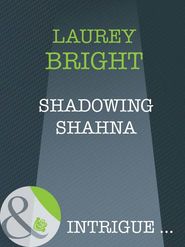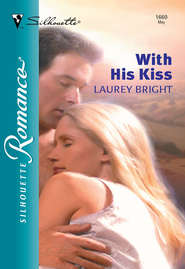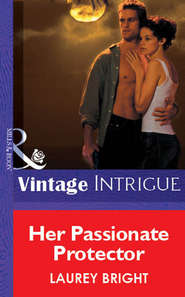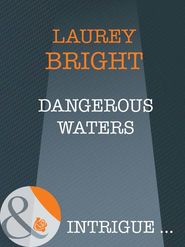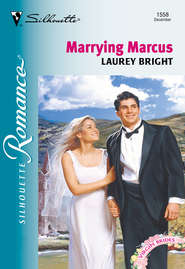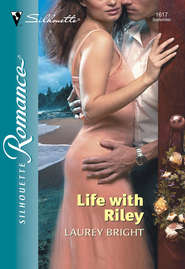По всем вопросам обращайтесь на: info@litportal.ru
(©) 2003-2024.
✖
The Heiress Bride
Автор
Год написания книги
2018
Настройки чтения
Размер шрифта
Высота строк
Поля
“No thanks.” She shut the parasol decisively and placed it in her glass.
Chase’s gaze followed the movement. “How was it?”
“The way it looked,” she answered succinctly.
He gave a small, almost silent laugh. “Pink and sweet,” he said, following her exactly. “Didn’t you like it?”
“It was fine. I just don’t need another.”
He was still looking at her rather curiously, humor curling his mouth, when Spencer called his attention back to business.
After the waitress led them to their table it was Chase who pulled out a chair for Alysia between him and her father. The discussion continued throughout the meal.
“Our clients will provide most of the copy,” Howard said.
Chase leaned back in his chair and picked up his wine glass. “Half the PR people who write those advertorials can’t even spell, let alone string a literate sentence together.”
“So we edit it!” Howard spread his hands. “That’s what we pay sub-editors for.”
“Advertorial?” Alysia queried.
Howard explained. “Articles about our advertisers’ products.”
“I know,” she answered. “Disguised advertising. A cheap way to fill pages.”
Chase gave her a considering look. “You have a problem with it?”
At journalism school this subject had been debated quite hotly. “I think people should know when they’re reading puff for the paper’s clients, not a real product comparison. Will the supplement be labeled as advertising?”
Spencer said impatiently, “People wouldn’t read it.”
“They would if they’re interested in the featured products,” she argued.
“You don’t think,” Chase asked her, “that our readers are astute enough to know that a glowing article cheek by jowl with an ad for the product is a promo?”
“A lot of people trust a newspaper to deliver impartial opinions.”
“Certainly, in the news pages—”
Spencer interrupted brusquely. “People who don’t advertise with us can’t expect free publicity, Alysia. Just let us get on with our planning, my dear.”
Alysia swallowed a protest. She might have paper qualifications but that didn’t give her any clout with these experienced men. “Yes, of course,” she said quietly.
Chase’s eyes were still on her, as if she’d intrigued him, although her views couldn’t be new to any seasoned newspaperman. “I’m interested in what Alysia has to say.”
“I’ve said it.” She looked down at her plate and speared a morsel of pineapple.
“We value your opinion, I’m sure.” Her father gave her a perfunctory smile, but she was more conscious of Chase’s concentrated gaze. “Now, Chase, if we have copy from advertisers there’ll be no need to send staffers…”
No use expecting her father to listen seriously to her. Even though these days he bought her cocktails and took her along to an impromptu business dinner instead of treating her to ice-cream cones and G-rated films. Maybe parents never really accepted that their children had grown up.
When they’d had coffee Chase pushed his cup aside. “Thanks for the meal, Spencer. Shall we call it a night?”
Howard said, “I want to talk to Spencer about a problem with the classifieds.”
Spencer called the waiter for more coffee, but Chase and Alysia both shook their heads.
“You don’t need me anymore,” Chase said. Again his eyes lighted on Alysia, with that new and disconcerting intentness. “Alysia looks tired. If you two want to stay on, I can take her home.”
“I don’t mind waiting,” Alysia said.
But Spencer waved a hand benevolently and said, “Go with Chase, my dear. I’m sorry if this is a bit tedious for you.”
Didn’t he know she wanted to be involved in anything to do with the paper? It was her future. “It isn’t at all—”
But Chase was already on his feet, and she had little choice. Gathering up her bag, she said good-night to Howard and walked beside Chase to the entrance, then into the cooler night air in the car-park.
Chase paused outside the doorway and let out a brief, whistling breath.
“You didn’t need to offer to take me home,” Alysia said. “It’s out of your way—”
“No problem.” He curled his fingers around her arm in a light hold. “I’m grateful for the excuse.”
Alysia was silent, and as they neared his car he said, “Sorry. That was tactless.”
Not sure if the apology was for the implication that he’d wanted to get away from her father, or for suggesting that taking her home was no more than a pretext, she said coolly, “It’s all right, Mr. Osborne.”
He unlocked the passenger door and turned his head to glance at her probingly as he opened it.
With careful grace Alysia sank into the seat and waited while he closed the door.
When he slid in beside her he didn’t immediately start the engine. Instead, his hands resting on the steering wheel, he turned to her and queried, “Mr. Osborne? We’ve known each other since you were a skinny little schoolgirl, Alysia.”
Alysia had been nearly sixteen when Chase came to work for the Clarion. Leaving school eighteen months later, she had completed her Bachelor of Commerce in Auckland, several hours south of Waikura, before enrolling in journalism school still farther south in Wellington for a graduate diploma.
And in those few years Chase Osborne had climbed through several grades to chief reporter. And now deputy editor, although he couldn’t be more than thirty.
“I might have been skinny then,” Alysia said, “but actually I was tall for my age.”
His mouth curved. “And you’re not skinny any longer.”
His eyes remained on her face, but she recalled his almost absentminded assessment of her legs when she’d sat in her father’s office, and again the memory of that devastating kiss under the pepper tree surfaced, tingling in her blood.
“All grown up, in fact,” Chase said. “But I hope you don’t expect me to call you Miss Kingsley.”
“I’m not a snob.”
“No?”






